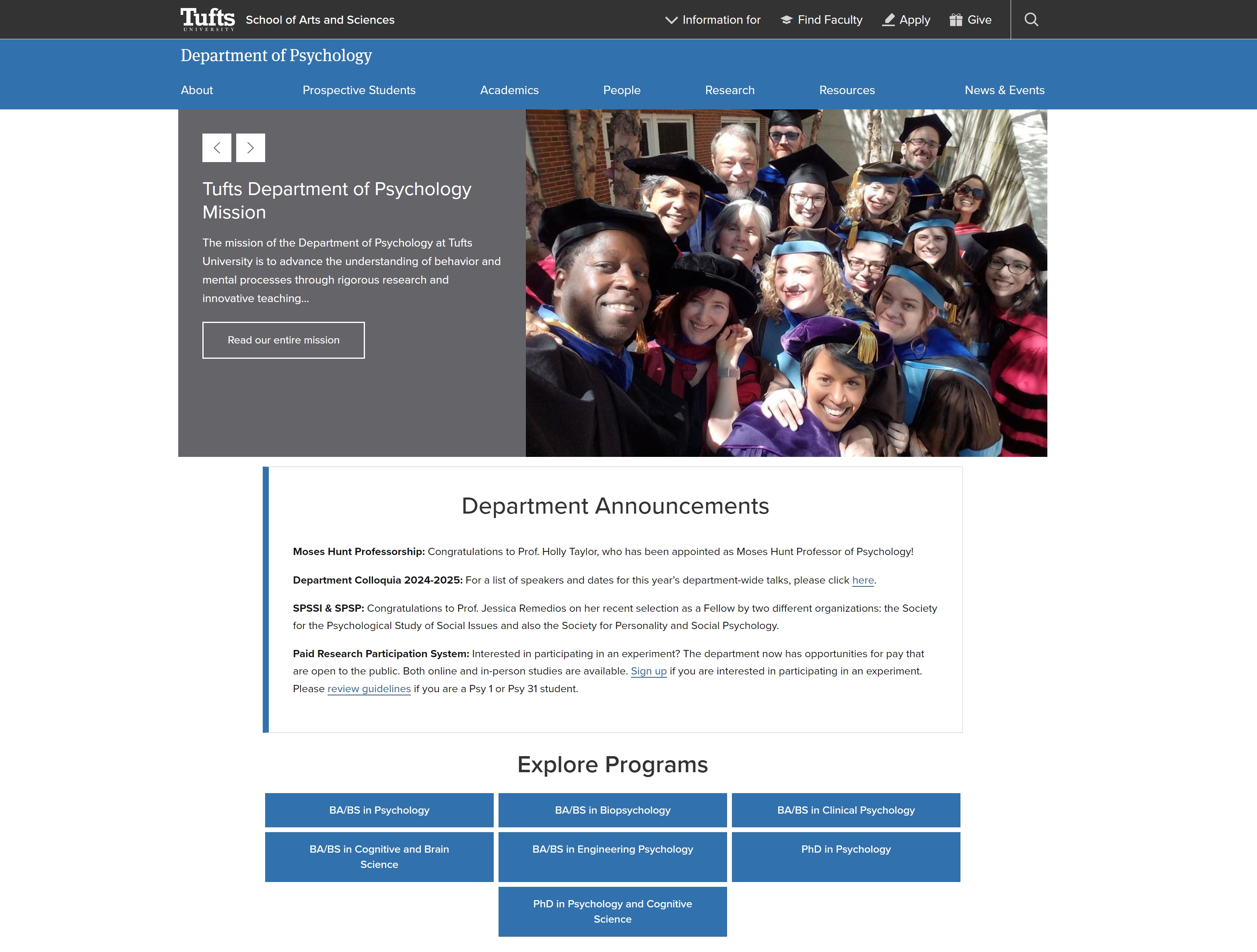
Emory University Department of Psychology
The Department of Psychology at Emory University emphasizes the scientific study of behavior, offering undergraduate and graduate programs across various psychology disciplines. Emory University's Department of Psychology conducts wide-ranging research with humans and nonhuman animals, studying cognition, memory, learning, social behavior, and the biological bases of these capacities, as well as the assessment, diagnosis, and treatment of psychopathology.

Detalyadong Panimula
Emory University's Department of Psychology provides a balanced curriculum in experimental, social/personality/clinical, neuroscience/animal behavior, and cognitive/developmental areas, fostering collaboration and research opportunities for students. Research in the Department of Psychology is wide-ranging, including work with both humans and nonhuman animals. We study cognition, memory, learning, social behavior, and the biological bases of these capacities. There is also work on the assessment, diagnosis and treatment of psychopathology.Our methodologies include behavioral experiments, questionnaire studies, and observational studies, as well as brain imaging, electrophysiological studies, hormonal assays, and genetics.
Higit paUnibersidad

University of Glasgow School of Psychology and Neuroscience
Glasgow's School of Psychology and Neuroscience links the mind and the nervous system through world-class research and teaching, addressing major scientific questions and contributing to human health and well-being.

Western University Department of Psychology
Did you know that the Psychology Department at Western was ranked 4th in Canada and in the top 150 Psychology Departments worldwide in the 2023 QS World University Rankings?

Tufts University Department of Psychology
The Department of Psychology at Tufts University conducts cutting-edge research aimed at understanding the causes and consequences of mental processes and behavior. Our work addresses social, cognitive, and neural levels of analysis. We are innovative and interdisciplinary in our approach and emphasize understanding phenomena that have a direct impact on society. Scientists at all levels - faculty, postdoctoral trainees, and graduate and undergraduate students - engage in collaborative scholarship and critical thinking in the classroom and in the laboratory. This synthesis, between research and teaching, positions us to ask and answer fundamental questions while also enriching our students' understanding of psychology.